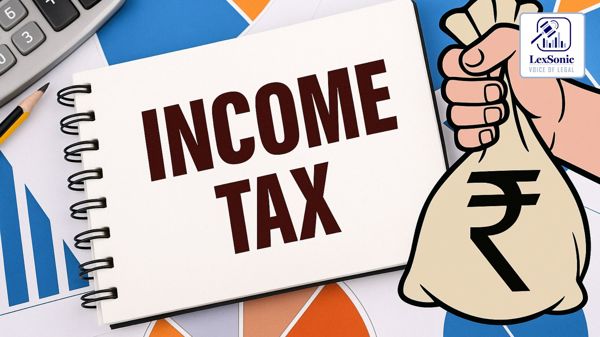Interest Deduction on Borrowed Funds for Investment in Non-Taxable Dividend Income: Legal Implications and Judicial Precedents.
01 March 2024
Income Tax >> Tax Laws
The Income Tax Act, 1961, has clear provisions regarding the deductibility of interest expenses in relation to borrowed funds. A key issue that often arises is whether interest paid on loans used for investments that generate non-taxable income, such as dividend income, is deductible. In this context, the legal question is whether such expenditure should be disallowed under Section 14A of the Act. This article analyzes a case concerning the allowability of interest on borrowed funds used by a stockbroker to acquire shares in his own closely-held companies, where the primary income generated from the investments was non-taxable dividend income.
Factual Background:
The case concerns an individual, a Chartered Accountant by qualification, who switched professions to become a stockbroker. In 1987, the appellant acquired a membership card to the Bombay Stock Exchange and later in 1994, joined the National Stock Exchange. Over time, the appellant borrowed significant funds and invested them primarily in shares of his own two companies—MKM Shares and Stock Brokers Ltd. and MKM Finance and Investment Pvt. Ltd. The appellant claimed a deduction for the interest paid on the borrowed funds, amounting to Rs. 36,88,866.
However, the Assessing Officer (AO) disallowed the interest expenditure, arguing that no deduction could be claimed for expenses related to income that does not form part of the total taxable income under the Income Tax Act. Specifically, the AO pointed out that the income derived from the shares—mainly dividends—was exempt from tax under Section 10(33), and thus the interest expense related to this income could not be deducted under Section 14A.

The Decision of the Commissioner of Income Tax (Appeals):
The Commissioner of Income Tax (Appeals) upheld the AO’s disallowance, emphasizing the provisions of Section 14A of the Income Tax Act. Section 14A disallows deductions for any expenditure incurred to earn income that is exempt from tax. The CIT(A) ruled that since the dividends from the appellant's investments in his two companies were non-taxable, the interest expenditure on the borrowed funds could not be allowed as a deduction. The CIT(A) also rejected the appellant’s argument that the interest should be allowable under Section 36(1)(iii) as a business expenditure, noting that the shares were held as investments and not as stock-in-trade.
Appeal to the Income Tax Appellate Tribunal (ITAT):
Dissatisfied with the CIT(A)’s decision, the appellant appealed to the Income Tax Appellate Tribunal (ITAT). The ITAT upheld the earlier findings, agreeing that the borrowed capital was invested in shares of the appellant's own companies, from which no taxable income was received. The tribunal also noted that the appellant failed to demonstrate a direct connection between the borrowed funds and his business activities. The ITAT pointed out that the primary purpose of the investment was to acquire a controlling interest in the companies, which did not have any direct bearing on the appellant’s stockbroking business.
Legal Framework: Section 14A and Section 36(1)(iii)
The legal issue revolves around the interpretation of two sections of the Income Tax Act: Section 14A and Section 36(1)(iii).
Section 14A prohibits the deduction of any expenses incurred in relation to income that is not part of the total taxable income. The exemption of dividend income from the total income under Section 10(33) means that any expenditure related to earning this income, such as the interest paid on borrowed funds, cannot be allowed as a deduction.
Section 36(1)(iii), on the other hand, permits a deduction for interest on loans taken for the purpose of business. The appellant argued that the interest paid on borrowed funds should be deductible under this section because the borrowed funds were used for acquiring shares in companies in which he had a controlling interest, thus furthering his business activities. However, the ITAT found no evidence of a direct connection between the investment in shares and the appellant’s business activities as a stockbroker.
Judicial Precedents and Interpretation:
The appellant relied on the Supreme Court's ruling in S.A. Builders Ltd. v. Commissioner of Income Tax (2007), where the Court held that expenses incurred for commercial expediency should be allowed as business deductions. However, the Court in Maxopp Investment Ltd. v. Commissioner of Income Tax (2018), a case involving a similar issue, clarified that the dominant purpose for which the investment is made is irrelevant under Section 14A. In Maxopp, the Supreme Court held that if an expenditure has a causal connection with the non-taxable income, such as dividend income, it must be disallowed under Section 14A, even if the primary intention behind the investment was not to earn the dividend.
The Court emphasized that Section 14A focuses on whether the income derived is taxable or exempt, rather than the purpose behind the investment. Therefore, any expenditure related to earning exempt income, like dividend income, must be disallowed, regardless of whether the investment was made for business control or trading purposes.
Conclusion:
In light of the judgment in Maxopp Investment Ltd. (2018) and the provisions of the Income Tax Act, the appellant’s claim for a deduction of the interest paid on borrowed funds was correctly disallowed. Since the dividends from the shares were exempt under Section 10(33) of the Act, the expenditure incurred to earn that income fell squarely within the ambit of Section 14A, and thus could not be allowed as a deduction.
The case underscores the importance of ensuring a direct connection between the borrowed funds and taxable business activities for the deduction to be permissible. The ruling also reinforces the principle that expenditures related to non-taxable income, such as dividends, cannot be deducted, even if the investment is made for purposes other than earning dividend income, such as controlling a company.
Thus, the appeal was dismissed, affirming the ITAT's decision.
